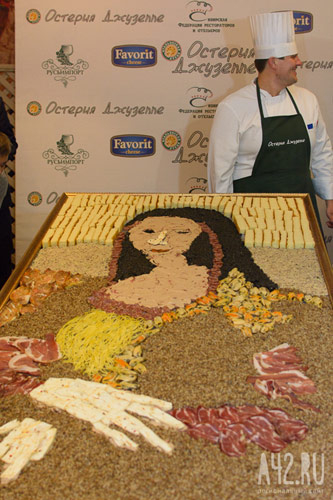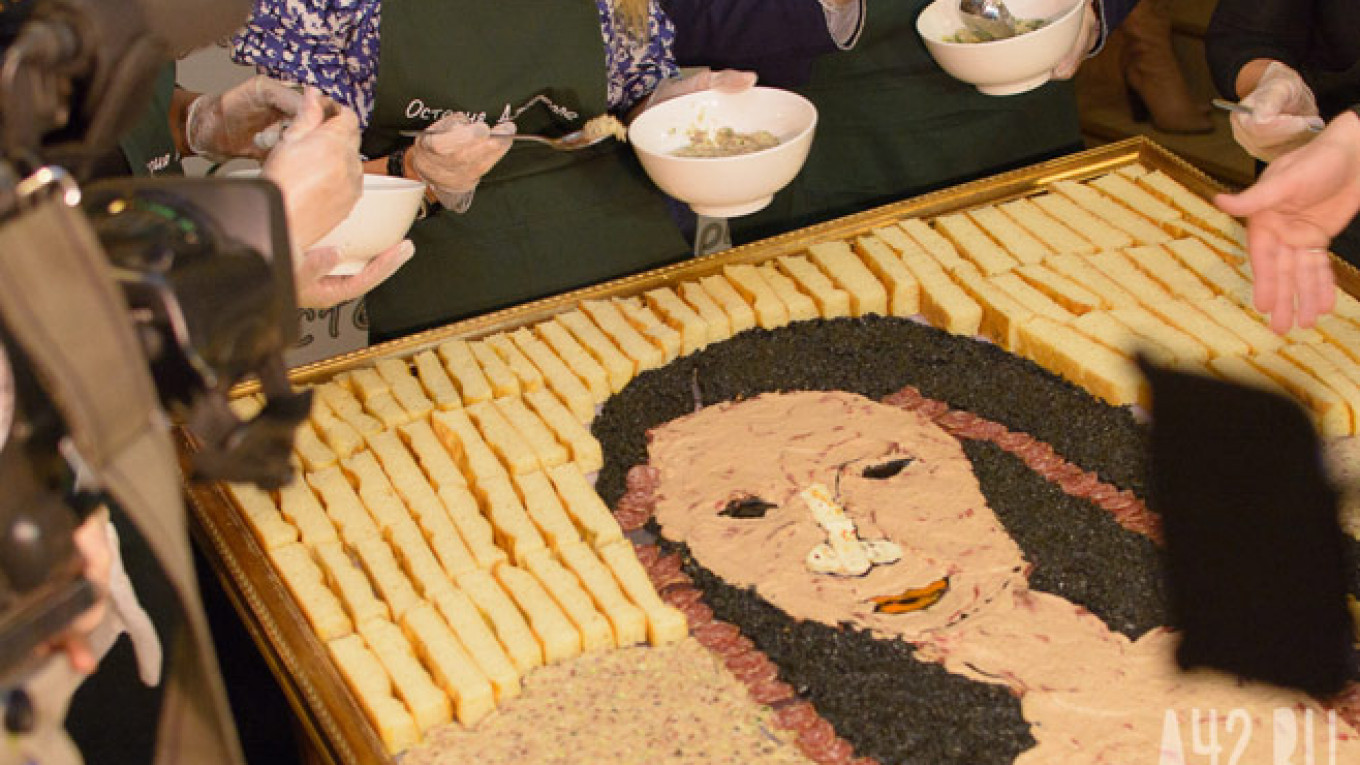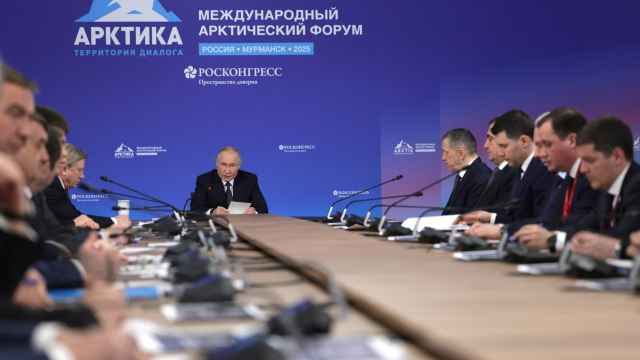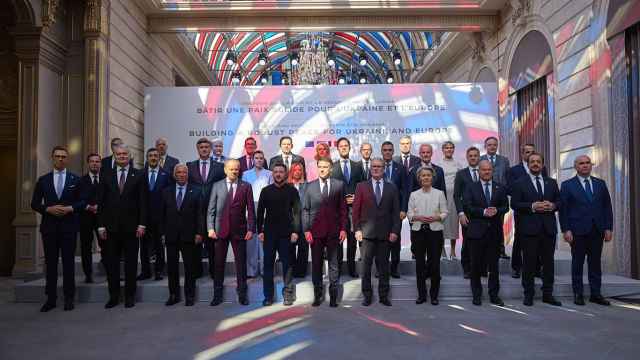With black-rice hair and a shawl made of spaghetti, Russians have given their own twist to the iconic "Mona Lisa" painting.
On Wednesday a restaurant in the southwestern Siberian city of Novokuznetsk was inspired by Russia's food import ban to create a 25-kilogram edible copy of Leonardo da Vinci's painting the "Mona Lisa" — using only domestic ingredients, local news outlet Bird.a42.ru reported.
The dish's ingredients included rice from the Krasnodar region, cheese from Barnaul, veal, spaghetti and mussels — all of which were sourced in Russia, the report said.
Russia in August extended by one year a ban on the import of a range of Western food products — including meat, fish, dairy and vegetables — in retaliation for sanctions imposed on the country over its role in the Ukraine crisis.
At 193 centimeters by 103 centimeters in size, the edible "Mona Lisa" was much bigger than the original — which measures 77 by 53 centimeters and is on view at the Louvre museum in Paris.

All of the dish's ingredients were sourced in Russia, the report said.
The event included a quiz on the well-known Italian painter and a competition for women to recreate the model's famously mysterious smile, the report said.
The Osteria Giuseppe restaurant has applied to be included in the Guinness World Book of Records with the stunt, the report said. The real "Mona Lisa" already holds a record in the book for the highest insurance valuation for a painting, at $100 million.
Edible paintings seem to be en vogue in the Kemerovo region — at an event in honor of Russia's Year of Literature, teachers earlier this week presented a food painting featuring a portrait of Russian poet Alexander Pushkin.
The edible Pushkin portrait used caviar and cheese as its raw materials, news outlet Gazeta.a42.ru reported, citing the regional authorities' press service, without specifying whether those too had been domestically sourced.
The "Mona Lisa" was painted by Italian polymath da Vinci around 1503 and is thought to be a portrait of the wife of a Florentine merchant called Francesco del Giocondo.
Contact the author at e.hartog@imedia.ru
A Message from The Moscow Times:
Dear readers,
We are facing unprecedented challenges. Russia's Prosecutor General's Office has designated The Moscow Times as an "undesirable" organization, criminalizing our work and putting our staff at risk of prosecution. This follows our earlier unjust labeling as a "foreign agent."
These actions are direct attempts to silence independent journalism in Russia. The authorities claim our work "discredits the decisions of the Russian leadership." We see things differently: we strive to provide accurate, unbiased reporting on Russia.
We, the journalists of The Moscow Times, refuse to be silenced. But to continue our work, we need your help.
Your support, no matter how small, makes a world of difference. If you can, please support us monthly starting from just $2. It's quick to set up, and every contribution makes a significant impact.
By supporting The Moscow Times, you're defending open, independent journalism in the face of repression. Thank you for standing with us.
Remind me later.






